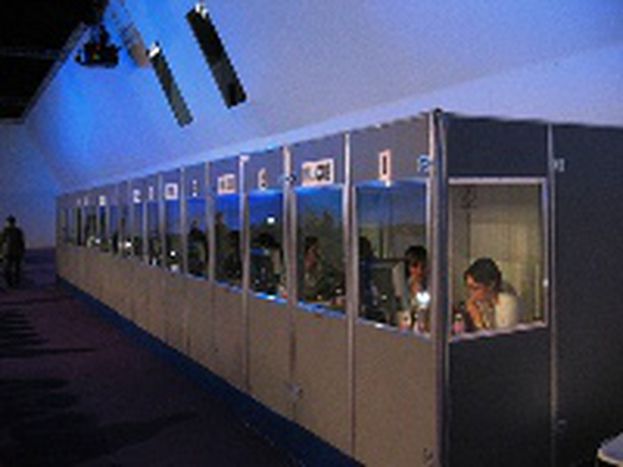
There was a Romanian, a Bulgarian and an Irishman...
Published on
Translation by:
 ed saunders
ed saunders
Irish clocks up '23' on the EU language meter as of January 1. The question on everyone’s lips: can the EU handle so many official languages?
The linguistic diversity of EU bodies is not only being increased by new members Bulgaria and Romania – Irish Gaelic has also received official status, by special request of the Irish government.
Plus three
Multilingualism is an EU trademark. The first European ruling in 1958 laid down the principle that all national languages within the European Economic Community (EEC) had equal status. Back then this was easy enough to implement, as the six founder members used only four official languages – German, French, Italian and Dutch.
As the EU grew, the principle of multilingualism remained unaltered. It now has several mentions in the draft constitution. However, did the founder members really foresee that 50 years later the EU would have to deal with 23 official languages?
Not all states insist on their language having official EU status. Luxembourg for example has not used this right on account of its own multilingualism. Nevertheless, Malta succeeded in winning official status for Maltese upon accession in May 2004, despite the country’s small size. Suddenly, Ireland, a long-time EU member, could not do without Irish. The Gaelic tongue now has equal status with the other 22 official EU languages.
Diagnosis: egoism
Effectively, the sheer number of languages is putting a strain on the EU. It has the world’s largest translation and interpreting service: countless translators process more than 1.3 million sides of paper per year. Political decisions are often delayed if documents are not available in all languages. From the European Parliament’s perspective, officials have for a long time arrived at an unofficial consensus, using only three languages: English, French and German.
How countries deal with multilingualism exposes the fundamental problem of the European Union. Even multilingual countries are not prepared to forego even one of their languages for the benefit of the rest of the Union, though some member states do display a readiness to compromise. In so far as the Union – in the absence of a constitution – can only go as far as individual members allow it to, the much needed reforms have now receded into the distant future.
Whos the interpreter?
The future of the European project lies in the hands of its member states, and above all, of its citizens. At the moment, however, many and various languages are being spoken. There is a lack of mutual understanding. In fact it is translation itself that is Europe’s language, but not in the sense that prompts countries to seek official status for their languages.
It would make more sense to translate the European project from government-speak into the language of the people. Recently the EU and its member states have been communicating poorly with citizens. Perhaps it would help to include civil society in this dialogue.
Translated from Das Europäische Projekt übersetzen


